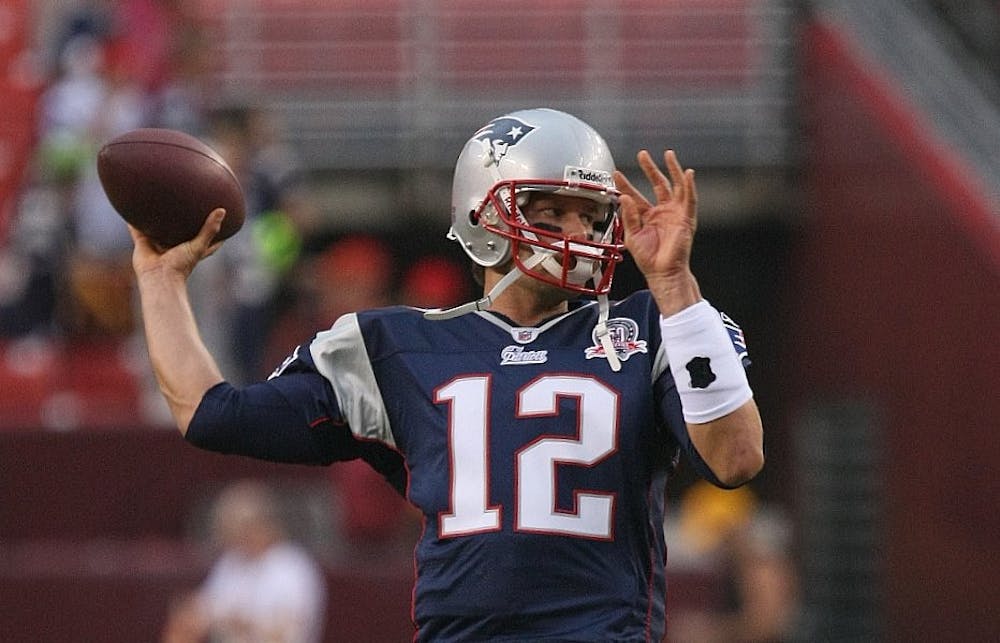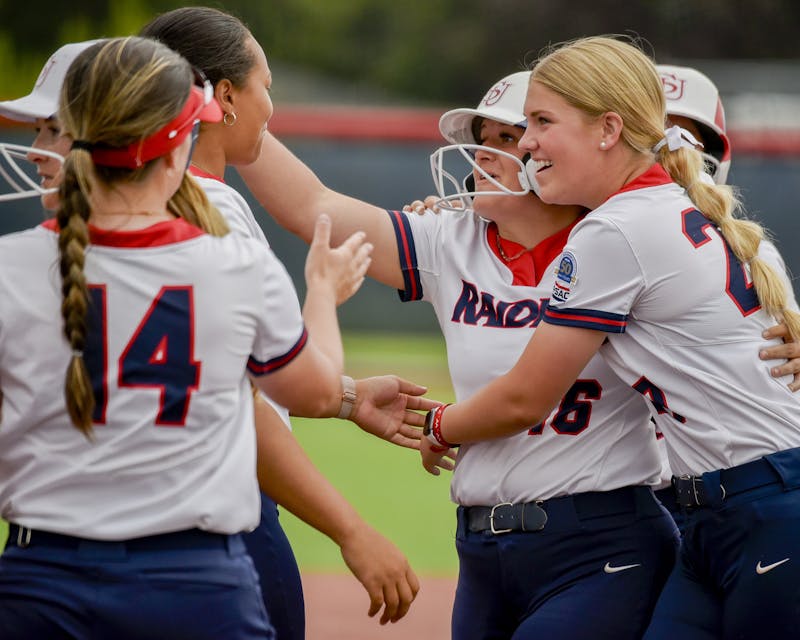In the past few years, NFL commissioner Roger Goodell has been faced with some tough situations and decisions to make. More often than not, the general public and many players or league personnel have expressed displeasure in Goodell’s handling of suspensions, fines, and bans. One of the more highly documented cases was that New England Patriots’ quarterback Tom Brady, who was originally suspended by Goodell for the infamous Deflategate scandal, was allowed to start the season as an active player. Your sports editors debate whether or not Brady should be allowed to play.
Cale
Personally, I do believe Brady should be allowed to play. Obviously, his suspension was overturned by an arbitrator because he didn’t find enough evidence to convict Brady of any sort of crime or infraction. If an arbitrator couldn’t find evidence against Brady, then surely Goodell never had evidence or any real reason to suspend Brady.
The true fault in this situation lies with the NFL, who didn’t have secure regulations or staff in place to handle the balls that were to be used for the game. If these staff members or rules were in place, it is highly unlikely that this situation would’ve ever occurred or overshadowed the AFC Championship game, while also leaving doubt over the entire New England Patriots’ organization.
Ultimately, I believe Goodell moved to suspend Brady because he needed to punish someone for the infractions of the deflated balls that were used during last year’s AFC Championship game. By suspending Brady, Goodell had a public figure that he could use to set an example. Firing behind the scenes personnel such as the equipment manager simply wouldn’t have been as effective as suspending one of the NFL’s brightest stars.
Shareik Flowers
This Deflategate fiasco has been an embarrassment for the NFL and a disaster for the league’s commissioner, Roger Goodell. Brady’s suspension was rightfully nullified, and the court’s reversal of Goodell’s decision is indicative of Goodell’s dwindling influence and reputation in the NFL.
Let me first remark that I in no way believe Brady is completely innocent in this situation. Common sense tells us it’s unimaginable that a 14-year veteran QB could be unaware the footballs he handled every snap weren’t deflated. But, with that being said, it’s undeniable that the both the arbitrator and Roger Goodell were unable to discover any evidence linking Brady to this scandal. This fact questions whatever justification Goodell presumed he had when he decided to enforce a 4-game suspension.
Brady’s premature suspension put a spotlight on the biggest continual flaw in Roger Goodell’s ruling system, both his consistency to hand suspensions with minimal to no evidence against players and his inconsistencies in suspension length when league policies were violated by players.
In 2012, New Orleans Saints linebacker Johnathan Vilma was given a 16-game suspension for his role in the Saints’ Bountygate case, a suspension that was later vacated by former Commissioner Paul Tagliabue, who concluded that the marginal evidence against Vilma warranted no suspension. Last season, Wes Welker received a four-game suspension for Adderall use, while Baltimore Ravens running back Ray Rice received just two games for knocking out his girlfriend and dragging her unconscious body out of an elevator.
Giving a 4-game suspension to one of the NFL biggest stars was a bold move by Goodell, but a more premature one. Brady is rightfully playing and Goodell’s reputation has taken another drastic dip.




The Slate welcomes thoughtful discussion on all of our stories, but please keep comments civil and on-topic. Read our full guidelines here.